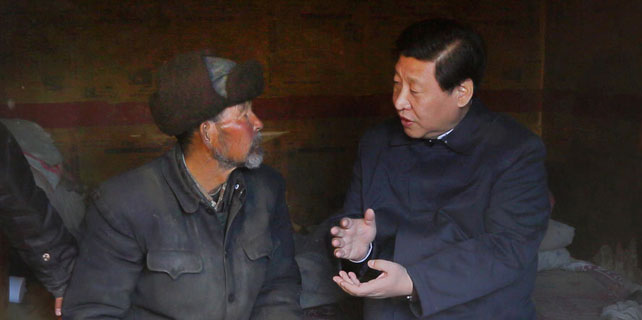China, Allies ponder US role after TPP withdrawal
In the wake of President Donald Trump's decision to withdraw the US from the Trans-Pacific Partnership free trade agreement, China and American allies are weighing what role the US will play in ongoing global trade negotiations.
Leaders of some of the 11 other nations besides the US in the Trans-Pacific initiative said they hoped to push ahead with some type of trade agreement. Australian Prime Minister Malcolm Turnbull said he had discussed the pact's future with the leaders of Japan, Singapore and New Zealand and believed it could survive without the US.
The Trans-Pacific Partnership, or TPP, was signed in 2016 by the US and 11 other Pacific Rim nations. The pact aimed to deepen economic ties between the nations by slashing tariffs and fostering trade to boost growth.
Wayne Morrison, a specialist in Asian trade and finance at the Congressional Research Service, said the idea of TPP was to create a "high standard" agreement that would focus on a number of issues important to the US economy, such as intellectual property rights protection and digital trade. It was envisioned that other countries would join the TPP and that this would be a template for broader FTAs and eventually a multilateral agreement in the World Trade Organization.
"While some have argued that a US-led TPP was conceived as a strategy to counter growing Chinese economic influence, I believe that it was intended to draw China in as an eventual TPP member, because doing so could be a way to induce China to significantly reform its economy and reduce trade barriers," he said in an email.
"The economic implications of pulling out of the TPP are significant. There is now an issue of credibility for the United States because of the withdrawal from TPP and plans to renegotiate the North American Free Trade Agreement (NAFTA). Will countries still want to negotiate FTA's with the United States now? We will have to wait and see," Morrison said.
"TPP is much more comprehensive than the existing trade pacts in terms of both trade liberalization and new rulemaking. So the US withdrawal means that American firms and workers will lose those additional benefits. And other TPP countries will lose the new opportunities created by the TPP in the US and other markets," said Jeffrey Schott of the Washington-based Peterson Institute for International Economics in an email.
Meg Lundsager, public policy fellow at the Wilson Center and a former US executive director at the International Monetary Fund, said Japanese officials hope to change President Trump's mind on TPP.
"That signals that Japanese leaders view TPP as very much to their country's benefit, although as far as bilateral trade goes, the US would have gained substantially by opening up Japanese agricultural and other markets, had the US ratified TPP. A US-Japan bilateral could start by replicating TPP terms. Mexico and Canada are very dependent on trade with the United States, with supply chains deeply linked across borders. When NAFTA renegotiation is raised, I suggest the United States ask our two North American partners to agree to the terms in TPP. That could be a very quick negotiation and would benefit all three members," wrote Lundsager in an email.
The Peterson Institute's Schott noted that seven of the 12 TPP signatories already participate in the talks on the Regional Comprehensive Economic Partnership (RCEP), a proposed free trade agreement between the member states of the Association of Southeast Asian Nations (ASEAN) and the six states with which ASEAN have existing free trade agreements.
"Australia already has an FTA with China, and Japan is negotiating one too," said Morrison. "If the other TPP members (such as Canada, Mexico, etc.) entered into FTAs with China, joined RCEP, or were part of a broad Asia-Pacific FTA, that certainly would raise concerns in the United States no matter who was the US President. It is unclear what President Trump might do to try to halt those countries from moving in that direction."
"Australia and Japan are already party to RCEP negotiations, which will not deliver the same scope of market opening that TPP would have delivered. At this point, I do not expect Mexico or Canada to seek to join those negotiations. Both will likely focus on preserving open trade within NAFTA," said Lundsager.
paulwelitzkin@chinadailyusa.com
















